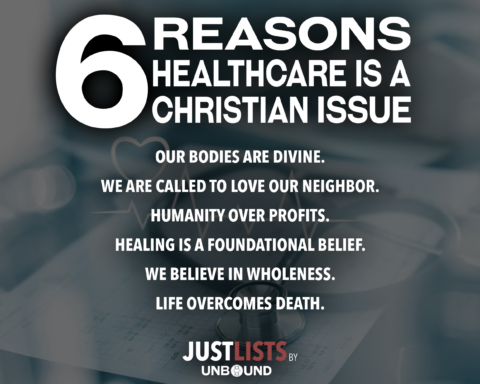And the Word became flesh and lived among us, and we have seen his glory, the glory as of a father’s only son, full of grace and truth. – John 1:14 (NRSV)
When John spoke to us saying “the Word became flesh,” John introduced to us the heavenly mystery of incarnation – the embodiment of the Divine in human carne, intensifying the Divine -human unity seen in Jesus as the Christ. The idea of Incarnation turned the early church away from dualism; John’s sacramental imagination framed a life-giving dance that both spirit and body perform. The Incarnation infused the flesh with a Godly force that tells us that our bodies are important not only to ourselves but to God. Our bodies are how we walk through life, how we go into action for change and how we express our uniqueness in creation. Gnostic notions of the flesh as grotesque because corruptible are made bogus because our God-in-Christ walked, talked, ate, fished, cried and rose, wounds still visible but overcome.
The Incarnation infused the flesh with a Godly force that tells us that our bodies are important not only to ourselves but to God. Our bodies are how we walk through life, how we go into action for change and how we express our uniqueness in creation.
Fast forward past the centuries of Western history when healthcare was democratized and scientific advances, in inoculation, sanitation, anesthesia were shared, and governments took pride in the health of their people.
Yes, the divine promise for our bodies is still under siege due to our mortality. And because the well-being of our bodies is being attacked, our souls, too, are suffering. Healthcare, specifically within the context of the United States, has been coopted by private insurance companies, hospital empires and partisan politics. With the limited victory of the Affordable Care Act came a paradoxically increased opposition to the potential of universal healthcare and fear of the demise of the private insurance sector. Medicaid became a taboo word that many state governments and their leaders equated with “government overreach” and “socialism.” This safety net for the most vulnerable in our country is now threatened by an increased ideological opposition, much based in the Administration itself, and people are suffering for it. The number of uninsured US citizens has begun to climb again, after years of decline.
Our siblings in rural areas of our country are some of the most vulnerable who are suffering the consequences from the attack on Medicaid and affordable healthcare. Medicaid expansions, implemented by the Affordable Care Act, are vital for the lives of our siblings in rural areas, but carry their own paradoxes. Statics show that individuals in rural areas are less likely to have insurance due to lower incomes, lower employment rate, and higher percentages of people with disabilities.[i] This increased uninsured population creates a financial burden on the institutions that provide healthcare in the region. Medicaid expansions provide these healthcare providers with financial revenue to make up for the cost of uninsured individuals allowing the care facilities to stay open for the community. However, in the last few years, these expansions have seen a decrease in several states which proportionally has created a financial crisis and, in return, has resulted in the closures of many rural hospitals.
Medicaid expansions provide these healthcare providers with financial revenue to make up for the cost of uninsured individuals allowing the care facilities to stay open for the community.
Rural hospitals in states that denied Medicaid expansion are closing at a rapid rate specifically in Texas and Tennessee. These closures are detrimental to the lives of our siblings who are living in the rural parts of our country. Fewer hospitals increase the travel distance for medical emergencies, strip communities of jobs, and leave destitute the elderly, the rural farmer, the immigrant workers, children and so many others. Rural communities see a decrease in populations as the lack of jobs and concern for well-being plague the minds and lives of rural people. [ii] These communities suffer tremendous aftermath from hospital closures because these hospitals are often economic centers.
The gospel of John tells us the story of when Jesus calls Philip to be a disciple. Philip finds a man named Nathanael and Philip proclaims that they have found the one who prophets spoke of…they have found Jesus. Jesus was from Nazareth which at that time was a small, rural village. And Nathanael asks, “Can anything good come out of Nazareth?” (John 1:46, NRSV) Can anything good come out of a place as small and remote as Nazareth? Can anything good come out of rural places? Nathanael met the notion of Jesus with hesitation because of his home of origin and where he came from.
Rural areas are often forgotten in the mainstream conversations of social justice and faith. Seen as simple, blanketed and homogenized, and placed lower than the needs of others, rural communities are filled with good, filled with diversity, and filled with humanity in need of help. Christ wondered and walked from the big city of Jerusalem to the small villages of Galilee where he and his followers healed and created wholeness for people in need. Christ did not forget his roots or where he came from — the rural village.
The healthcare crisis experienced by our siblings in rural areas is also a spiritual crisis for the Church. So where do we belong in this conversation? Where does the church find itself in the midst of hospital closures and refusals to expand Medicaid? When political parties run on “Christian” agendas in order to gain the vote from the stereotypical rural population and then vote down measures that ultimately harm their Godly inspirited bodies…what do we do?
We must find our roots in the incarnation. Jesus was a brown man on the margins, who had a body, who was from a little backwoods town, who healed, and who was himself prophetic, and hence political. Faith calls us to look through the lens of the divine in all walks of existence which includes healthcare policy. Medicaid expansions for our rural siblings expands both healing and security. The false and hypocritical narrative from politicians that bring false hope to our siblings must be called out like the unclean spirits Jesus and his followers called out. Our religious institutions, which are supposed to care for the whole community, the polis, are called to bring about change and advocate for health because within the DNA of our faith is the incarnation. Disciples are called to see the diversity in all places and spaces and challenge the systems of the people who have been forgotten in many conversations of justice.
We must find our roots in the incarnation. Jesus was a brown man on the margins, who had a body, who was from a little backwoods town, who healed, and who was himself prophetic, and hence political.
So may the Church, just as the Word, become flesh and go
into action. May we call our
representatives, advocate for expansions in healthcare, and challenge the false
narratives of politicians. May we remember our siblings who are on the farms,
in the fields, in the small gas stations, and tiny businesses. May we remember the children who are unable
to get a checkup, for the elderly who are 2 hours away from healthcare and for
the mothers-to-be who cannot get the care that they need. May we remember the hospital workers who lose
their jobs, the empty homes of those who’ve moved away, and the ghost towns of
the past. May we remember them just like
we remember our siblings in our cities. May we pray and struggle to end the dualism
of rural and urban (and suburban) places that splits our political body, and so
many human bodies. And may we pray for strength in the coming days because this
work is never over.
[i] Joan Alker, Jack Hoadley and Mark Holmes, “Health Insurance Coverage in Small Towns and Rural America: The Role of Medicaid Expansion,” accessed August 29, 2019, http://ccf.georgetown.edu/topic/rural-health/. Link to Article
[ii] Richard Lindrooth, Marcelo Perraillon, Rose Hardy, and Gregory Tung, “Understanding the Relationship between Medicaid Expansions and Hospital Closures,” accessed August 29, 2019, HealthAffairs.org. Link to Article






Unbound Social